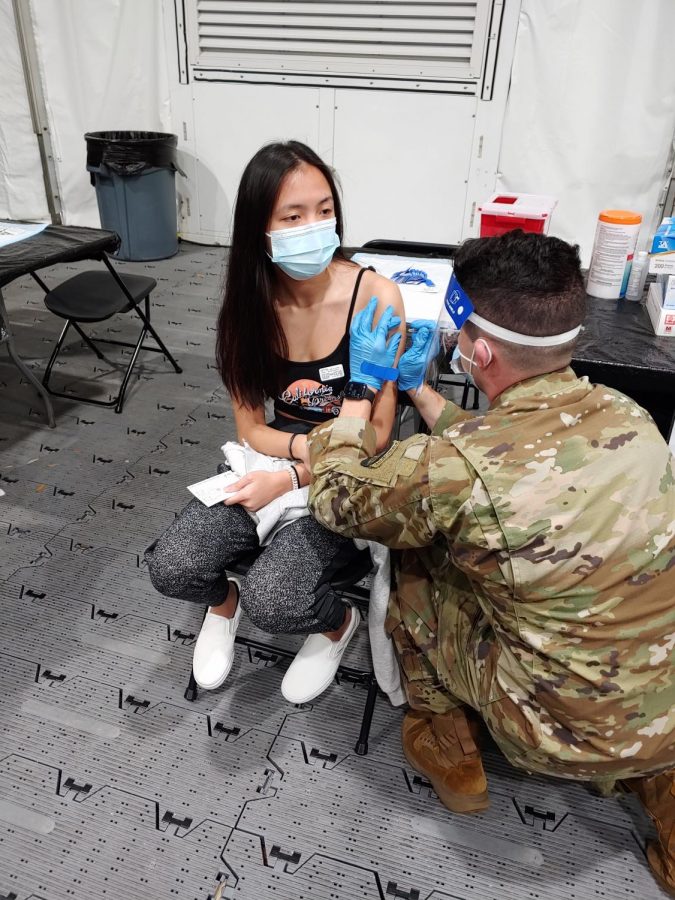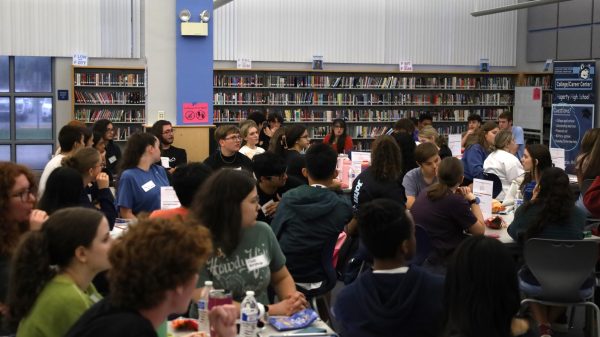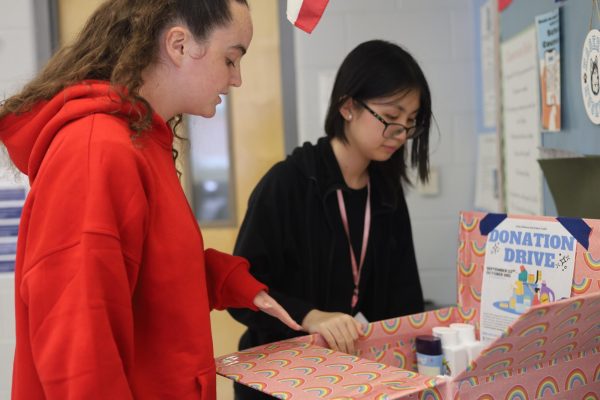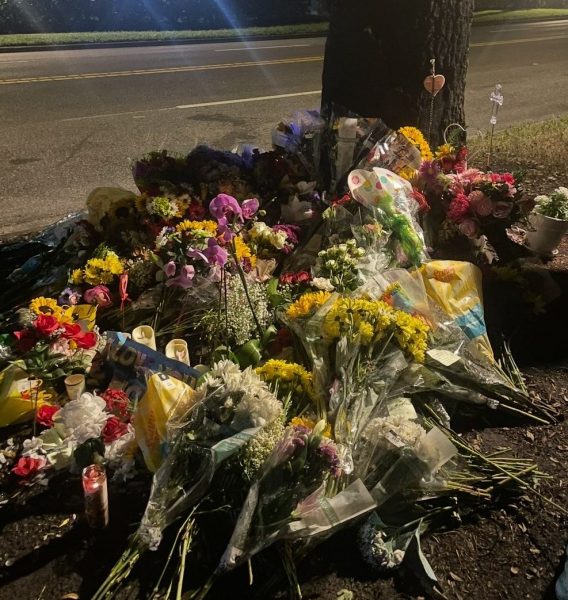Going under the needle
photo by Zoey Young
Junior Marissa Young receives her first dose of the Pfizer-BioNTech coronavirus vaccine on April 26. Pfizer vaccines are available to individuals age 16 and older across the United States.
Staring at his computer screen, sophomore Braden Bast refreshed the Seminole County website every minute waiting for coronavirus vaccine appointments to open up. Bast scheduled his appointment for the first day vaccines were available to 16-year-olds in Florida.
“I wanted to get the vaccine because I want to feel comfortable going out in public again,” Bast said.
On April 19, Pfizer-BioNTech vaccines were made available for all over the age of 16 in the United States. The decision to expand vaccine eligibility was dependent on individual states, with Florida opening up eligibility on April 5, allowing junior Zachary Dayeh to get vaccinated on April 8.
“I have high risk friends and family members, and I felt that their safety took priority,” Dayeh said.
As of April 26, over 228 million vaccines have been administered in the U.S., according to the CDC. This means that nearly 30% of all Americans have been fully vaccinated, while only 0.4% of Americans under 18 have been fully vaccinated. This number is expected to rise with the new eligibility requirements.
“I think that it’s important that everyone gets vaccinated,” Bast said. “There are always going to be people who don’t care and don’t follow guidelines, so it’s better safe than sorry.”
A variety of possible side effects to the coronavirus vaccine include fever, nausea and lightheadedness. Many worry that the vaccine is unsafe for women due to rare anaphylactic reactions occurring almost exclusively in women. Along with that, there are many unanswered questions regarding if the vaccine is safe for pregnant women.
Politically, the vaccine is a controversial topic, and disagreements are inevitable. Some students, like senior Jane Doe*, have yet to receive the vaccine, believing that the risks outweigh the benefits.
“My mother believes that getting the vaccine would do more harm than good,” Doe said. “I’m conflicted. Do I get the vaccine and upset my family, or do I refrain from getting it and risk getting coronavirus?”
Fifteen women experienced severe blood clotting after having the Johnson and Johnson vaccine administered, according to the CDC, but after extensive testing, it was determined to be safe. After weeks of being on “pause,” the vaccine was re-approved for use on April 23.
Pfizer has recently asked the Food and Drug Administration to expand vaccine eligibility to children aged 12 to 15. Data scientist Youyang Gu predicts that around 70% the United States population will be vaccinated by the end of summer, with children being the last group to receive the vaccine.
In order for minors to get vaccinated, they must have a signed form of parental consent, along with legal documentation to prove their age. Vaccine sites in Seminole County include the Oviedo Mall, Winter Springs High School, and local drug and grocery stores.
“Getting the vaccine is smart and necessary,” Dayeh said. “I trust in the scientific process and my government.”
*Names have been changed upon request.
Your donation will support the student journalists of Hagerty High School. We are an ad-free publication, and your contribution helps us publish six issues of the BluePrint and cover our annual website hosting costs. Thank you so much!







